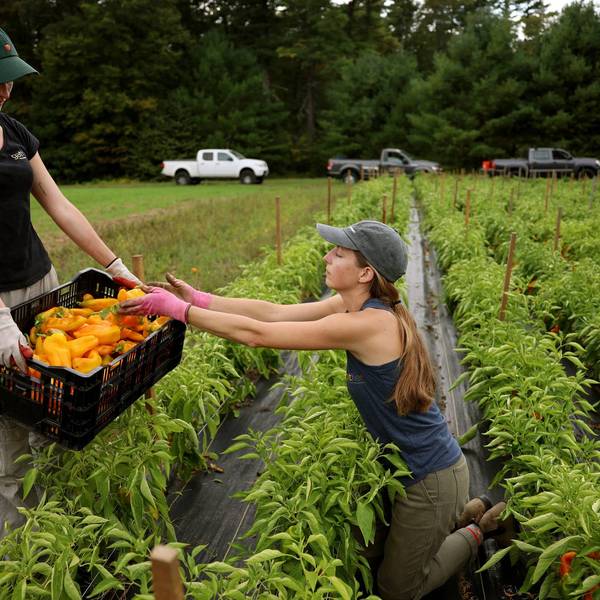On top of concerns about his close industry ties, corporate-friendly policy record, and alarming civil rights history, President Joe Biden's Agriculture Secretary nominee Tom Vilsack is also facing scrutiny over what one watchdog organization on Friday characterized as "disturbing" evidence that he improperly meddled in and suppressed scientific research during his previous tenure as head of USDA.
Throughout his nearly eight years as former President Barack Obama's USDA chief, Vilsack "routinely interfered with scientific work that big agriculture found bothersome," the advocacy group Public Employees for Environmental Responsibility (PEER) alleged in a statement Friday, pointing to the direct testimony and survey responses of department scientists.
"Tom Vilsack's record on scientific integrity at USDA was appalling. Government research documenting what is really going in American agriculture does not need a corporate filter."
--Tom Whitehouse, Public Employees for Environmental Responsibility
"Tom Vilsack's record on scientific integrity at USDA was appalling," said PEER's executive director Tim Whitehouse. "Government research documenting what is really going in American agriculture does not need a corporate filter."
One notable example PEER cited is the case of Dr. Jonathan Lundgren, an agroecologist who served as a senior research entomologist and lab supervisor for the USDA Agriculture Research Service during Vilsack's time as head of the department.
In 2015, Lundgren lodged a whistleblower complaint alleging that his USDA supervisors suspended him as punishment for publishing research detailing the harms neonicotinoid insecticides--commonly referred to as "neonics"--cause to monarch butterflies.
"It is USDA policy that political suppression and manipulation of science are not to be tolerated, but it is empty rhetoric," then-PEER staff counsel Laura Dumais, who filed the complaint on Lundgren's behalf, said at the time. "Dr. Lundgren is suffering the proverbial professional death by a thousand cuts precisely because of the implications [of] his scientific work for agribusiness."
To demonstrate that concerns about Vilsack's approach to scientific research were not limited to a few isolated complaints, PEER pointed to a 2016 Office of Inspector General survey showing that around 120 USDA agency scientists believed their research findings had "been altered or suppressed for reasons other than technical merit."
Additionally, less than half of the more than 1,300 survey respondents said they felt USDA strongly promoted a "culture of scientific integrity" under Vilsack's leadership.
"Unless he pledges to implement significant safeguards for scientists, Tom Vilsack should not be confirmed," said Whitehouse. "The days in which federal agencies function as scientific gulags should be behind us."
PEER's scathing assessment of Vilsack's disregard for scientific integrity came days after a coalition of progressive advocacy groups including RootsAction.org and Food & Water Watch launched a campaign urging senators to block the former USDA chief's confirmation.
Vilsack, the former governor of Iowa, is expected to appear before the Senate Agriculture Committee for his first confirmation hearing on Tuesday.
"Tom Vilsack, aka 'Mr. Monsanto,' served corporate interests for eight years as Secretary of Agriculture under Obama and continued to do so as head of one of the largest U.S. dairy lobbies after leaving office," the progressive campaign's website declares. "Vilsack ushered through a spineless GMO labeling standard rubber stamped by Big Ag, and sped-up the approval process for genetically modified crops. He allowed the meat industry to further monopolize--squeezing out small farmers--and scaled back oversight of poultry processing plants."
Emily Berch, a student at Iowa State University and an editorial intern at The Nation, argued Thursday that allowing Vilsack to return to the top of USDA would add "insult to the Democratic Party's long record of malign neglect toward rural Americans."
"Putting Vilsack back in charge at the USDA also ignores the advice of rural progressives and civil rights advocates," Berch argued. "While institutional knowledge can be an asset, it can also lead to a defense of the status quo, which, for a Vilsack-led USDA, means continuing to prioritize corporate agribusiness by sacrificing everyday Americans."




